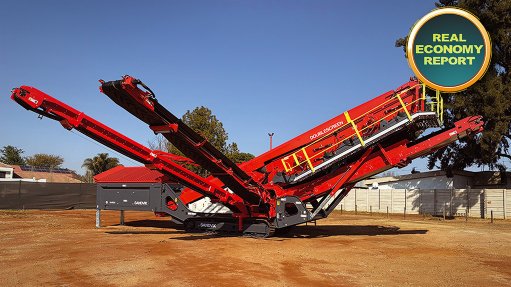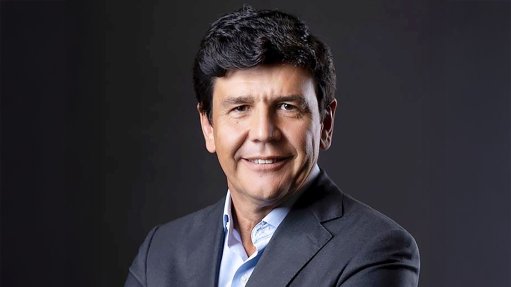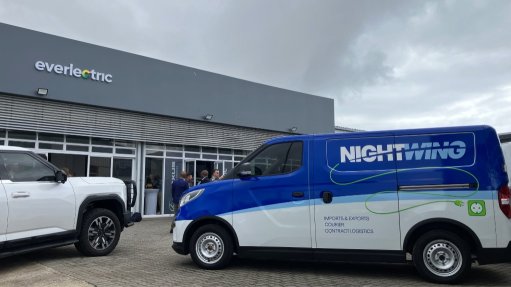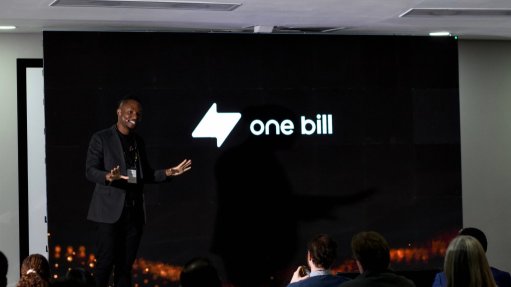Electric trucks can work in South Africa, insists Volvo Trucks
As the charge towards electric mobility continues unabated in Europe, the US and China, many questions are being raised around electric trucks in South Africa.
Can they travel the distances required in such a big country as ours? Does the high cost of such a truck justify the benefit of zero operational emissions? And what about State-owned power utility Eskom and its dreaded loadshedding, currently leaving South Africans without power for up to 12 hours a day?
Volvo Trucks South Africa (Volvo SA) believes it is possible to successfully operate these trucks locally, given the right operational parameters – so much so that the group is rolling out an entire range of heavy-duty trucks.
Volvo Trucks SA sustainable solutions manager Eric Parry says the local arm of the Swedish truck maker is making its complete extra-heavy electric range available in South Africa, starting from May.
This includes the FH, FM and FMX models in multiple truck-tractor and rigid configurations, and with axle combinations from 4 × 2 all the way to 8 × 4.
Each truck runs with a battery pack of between four and six batteries, with each battery having a maximum capacity of 90 kWh.
The homologation process for the first trucks is in progress, and the first one was expected to complete the process early this month.
First Movers
Volvo Trucks SA has already sold its first electric unit, with KDG Logistics to run the truck as a car carrier between a client and the Port of Durban.
These types of ‘milk runs’, which see trucks travelling shorter distances, often punctuated by heavy traffic, but with easy access to the depot and its charging facilities, are ideal for electric trucks, notes Parry.
Such operations also allow for quick opportunity charging as and when the driver takes a break or needs to stop.
Parry believes the first movers into the electric truck market will typically be eco- conscious companies that have programmes in place to reduce their carbon footprint.
“The size of the company is largely irrelevant.”
Another motivation to buy an electric truck is that fleet operators can see that electric drivelines are going to play a bigger role in the near future.
“Many of these companies want early exposure to this type of technology and the idiosyncrasies of how they function, so they can ensure they are ready for the technology shift,” explains Parry.
“In other words, they want to pay their school fees early on.”
Parry adds that electric trucks may lead to operational changes on a number of levels, which are not always that visible.
It is, for example, possible to redesign distribution centres to allow electric trucks to load and offload inside the centre – and not stand idling outside – as they produce no emissions.
First responders will also have to be trained to tackle these high-voltage machines should it prove necessary.
“Our team in Sweden is busy developing training modules for first responders, which we’ll then take to different municipalities here in South Africa,” says Parry.
An Emergency Response Guide is already available on the Volvo Trucks website.
However, while an electric truck requires a different type of operational thinking, a lot of it will remain familiar, he adds.
“Electric trucks can do everything normal trucks can do – operate in up to 40º heat, run up steep inclines (with 2 400 Nm of torque on offer), while it is also possible to tow the vehicle like any other should there be a mishap.
Sales Model
Electric trucks are typically two to three times more expensive than their diesel counterparts, which could place them out of reach of a standard fleet operator.
However, Volvo Trucks SA, along with Volvo Financial Services SA (VFS SA), is looking at various options to improve access to these vehicles.
“We are offering the trucks for sale but, working with VFS SA, we’ll also be able to put leasing options on the table,” says Parry.
“We are selling these vehicles with a comprehensive maintenance plan that could include battery replacement, should it prove necessary. Work is still ongoing in this area.”
Volvo is also looking at structuring some form of rental model, or equipment-as-a-service programme, where a specific rental period may be offered and billed using metrics such as the kilowatt-hours consumed or the tonnage moved.
“It’s early days still, but it is on our radar,” says Parry. “We need to make it easier – we need to derisk it – for customers to move to electric vehicles.”
One of the biggest questions Volvo Trucks SA is working on is what the resale value of electric trucks will look like.
“This is also a global question,” notes Parry.
“We typically see an eight-year life span for the batteries on these vehicles. At this point, they will still have 80% efficiency remaining, so they are still valuable, but perhaps of more use in other operations.”
Parry says the batteries in the truck could be replaced with new ones at this stage, with the used ones then sold on for use in stationary power supply applications, such as providing power to households or businesses.
This will all be factored into the price of the used truck.
Volvo Trucks SA does not expect a rush towards electric mobility in South Africa.
“We see sales in the early double digits for the first 12 months. By the end of June, we expect to have six customer trucks on the road,” says Parry.
He adds that the pay-off period on an electric truck should be about six years.
“But the scenarios differ when using Eskom power or solar power. Installing a solar-powered charger will be a fixed one-off cost, whereas Eskom energy costs can keep on rising.”
In five years’ time, Volvo SA could see yearly sales in the “high double digits”, notes Parry.
Powering Up . . .
To charge a Volvo electric truck, fleet owners would typically need a 60 kW DC to 250 kW DC charger.
The 250 kW charger will take the truck from flat to full in just under two hours, even though it is unlikely that most owners will ever reach the ‘flat’ scenario.
It is also unlikely that this type of trucks will make use of public chargers, as operators would rather opt for depot or destination charging.
Volvo SA has partnered with Aversa to provide DC chargers to their customers.
The cost is not included in the truck price, and starts at about R450 000.
“We are working on a finance model where the charger is included in the truck price,” says Parry.
It is, however, also possible to charge the trucks using slower AC chargers, or at any workshop industrial 400 V wall socket, but this will take eight to nine hours.
But what about loadshedding, especially if one uses that longer-running AC charger?
“To paraphrase a customer – ‘you are all here at this meeting with your phones and laptops charged because you planned ahead’,” says Parry.
“We believe it is possible to charge the trucks within the power windows available.
“However, we have found that a number of our customers already have large off-grid solutions, which means that they don’t need to rely solely on Eskom power,” he adds.
Using electric trucks to tackle the Durban to Johannesburg route is not yet a viable option, notes Parry, as the driver would need to charge twice, with each charge likely to take 90 minutes.
“This is impractical, so, in this case, diesel still makes more sense.”
Parry says Volvo Trucks SA is ready to help any potential customer determine if their business lends itself to electric trucking.
“We make use of an electric range simulator where we fill in the customer’s details, the vehicle’s details, the trailer’s details, the specifics of the route and the cargo, the payload changes along the route and subsequent weight changes – all of it – and then we calculate if the truck will make the last stop.”
Government Incentives
There are two pathways to electric truck adoption in South Arica, says Parry.
“The one is where there is no government support and the import duties remain as they are. The other is where government does actually provide some relief.”
The duties on electric trucks vary between 12% and 20%, which are the same as on diesel trucks, depending on the country of origin.
There is no additional luxury tax on trucks, as is the case with cars.
“But when faced with a purchase price two to three times that of a diesel truck, there is a need to see where savings can be made, as is the case abroad where governments are stepping in to stimulate demand,” says Parry.
“Within Naamsa | The Automotive Business Council, the Heavy Commercial Vehicle New-Energy Vehicle subcommittee is requesting a fixed period where the duties on electric trucks are either reduced or dropped completely, in order to level the playing field somewhat.
“Other incentives can include exemptions from toll fees or reduced licence fees.”
Apart from the cost issue, electric trucks also face some other challenges which will require government support, says Parry.
Volvo’s electric truck-tractors have a 700 mm longer wheelbase than that of a normal truck.
This in itself is not a problem, but when coupled to a standard South African interlink trailer, the vehicle ends up being 22.7 m in length, and not the legislated 22 m.
“This is not a problem unique to Volvo. Other electric trucks face similar challenges,” says Parry.
Also, the electric truck-tractors are all within the legislated weight limits, but the heavy batteries they carry – almost 2 t – mean operators will, in some cases, have to cut their payload by up to 2 t to remain legal.
In other words, fleet operators could possibly see their trucks being too long and too heavy when pulled over for inspection.
While this is not a problem considering the current, typical use of an electric truck, which is more about volume than weight, or the deployment of specialised trailers, such as car carriers, it may offer limitations going forward.
“What this means is that we need special legislative allowances on the maximum length and weight of electric trucks,” says Parry.
“There are roughly 250 000 trailers in South Africa. If we want to go electric, like the rest of the world, we cannot replace all these trailers. We must be able to operate with the existing fleet.”
Local Production?
Volvo SA currently does completely knockdown assembly of diesel trucks in Durban, which allows for duty exemptions.
However, this will not be possible with electric trucks, says MD Waldemar Christensen.
“As volumes increases, it is definitely in our future plans to build our electric trucks at our Durban plant.
“But the regulatory environment will play a big part in when this will happen, as volumes and sales need to increase significantly in order to make local production viable.
“If we can get support, such as a reduction of import duties to help drive uptake, then we may have a market big enough to support the economies of scale to justify the investment to build these trucks locally.”
Service Once a Year
Dealerships are also expected to face some changes as the transport landscape evolves to electric trucks.
Volvo has trained 14 technicians, mostly at its Johannesburg, Durban and Cape Town dealers, to work on electric trucks – particularly on how to decommission the traction battery system, which runs at 600 V.
The company has also invested in the correct implements for the workshops, such as gloves and insulated tools.
An electric truck will only need to visit the dealership once a year, irrespective of mileage driven. This is much less than would be the case with a diesel truck, which means Volvo Trucks SA will focus on providing a range of additional services to customers, says Christensen.
“Unlike a passenger car, a commercial vehicle is a business tool that works very hard in its day-to-day operation. So, while the requirement for services will reduce, the vehicles will still need maintenance and repair.
“This will, however, also see our focus shift more towards services that can support customers’ efficiency and uptime.”
In general, Parry expects the maintenance of an electric truck to be a third cheaper than that of a diesel truck.
“The braking system will need the most maintenance, as it is still a conventional air brake system. Also, the air dryer filters will need to be replaced when the truck is serviced, as will the gearbox and axle oils and air-conditioner filters, and so forth.”
What Comes Next?
Battery-powered trucks will not be the end of the new-energy revolution, with hydrogen fuel cell and hydrogen fuel vehicles already being tested worldwide by various manufacturers.
These vehicles will typically be able to tackle those longer routes, such as Durban to Johannesburg.
Volvo Trucks is working on developing these vehicles within its portfolio, says Parry, “and yes, we are ready to bring them to South Africa as soon as we can do so”.
Comments
Press Office
Announcements
What's On
Subscribe to improve your user experience...
Option 1 (equivalent of R125 a month):
Receive a weekly copy of Creamer Media's Engineering News & Mining Weekly magazine
(print copy for those in South Africa and e-magazine for those outside of South Africa)
Receive daily email newsletters
Access to full search results
Access archive of magazine back copies
Access to Projects in Progress
Access to ONE Research Report of your choice in PDF format
Option 2 (equivalent of R375 a month):
All benefits from Option 1
PLUS
Access to Creamer Media's Research Channel Africa for ALL Research Reports, in PDF format, on various industrial and mining sectors
including Electricity; Water; Energy Transition; Hydrogen; Roads, Rail and Ports; Coal; Gold; Platinum; Battery Metals; etc.
Already a subscriber?
Forgotten your password?
Receive weekly copy of Creamer Media's Engineering News & Mining Weekly magazine (print copy for those in South Africa and e-magazine for those outside of South Africa)
➕
Recieve daily email newsletters
➕
Access to full search results
➕
Access archive of magazine back copies
➕
Access to Projects in Progress
➕
Access to ONE Research Report of your choice in PDF format
RESEARCH CHANNEL AFRICA
R4500 (equivalent of R375 a month)
SUBSCRIBEAll benefits from Option 1
➕
Access to Creamer Media's Research Channel Africa for ALL Research Reports on various industrial and mining sectors, in PDF format, including on:
Electricity
➕
Water
➕
Energy Transition
➕
Hydrogen
➕
Roads, Rail and Ports
➕
Coal
➕
Gold
➕
Platinum
➕
Battery Metals
➕
etc.
Receive all benefits from Option 1 or Option 2 delivered to numerous people at your company
➕
Multiple User names and Passwords for simultaneous log-ins
➕
Intranet integration access to all in your organisation





















